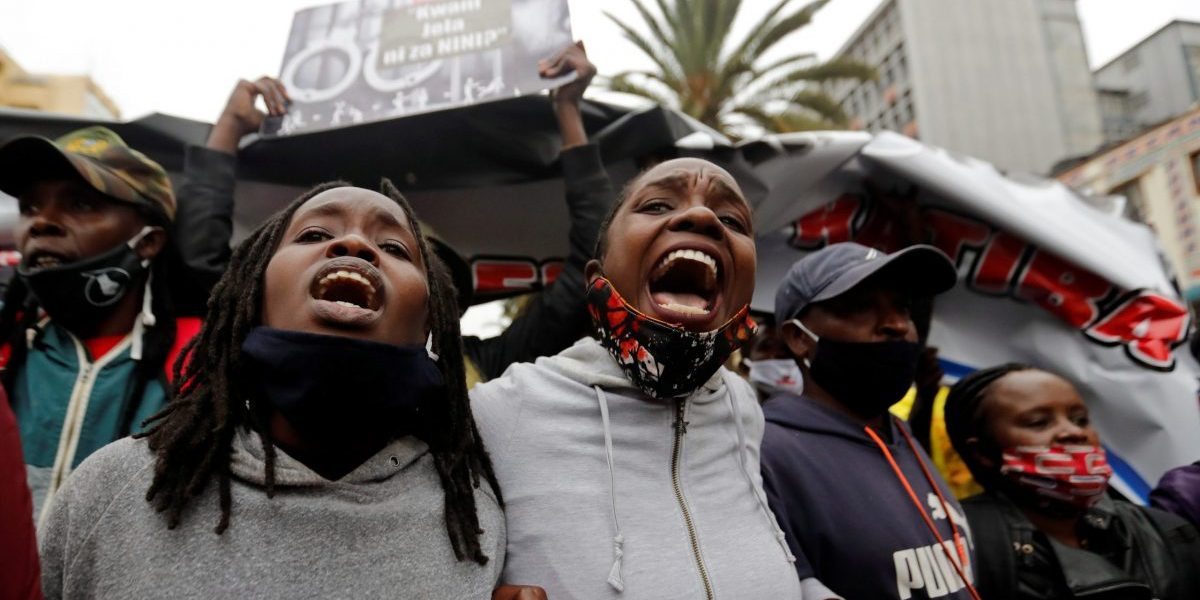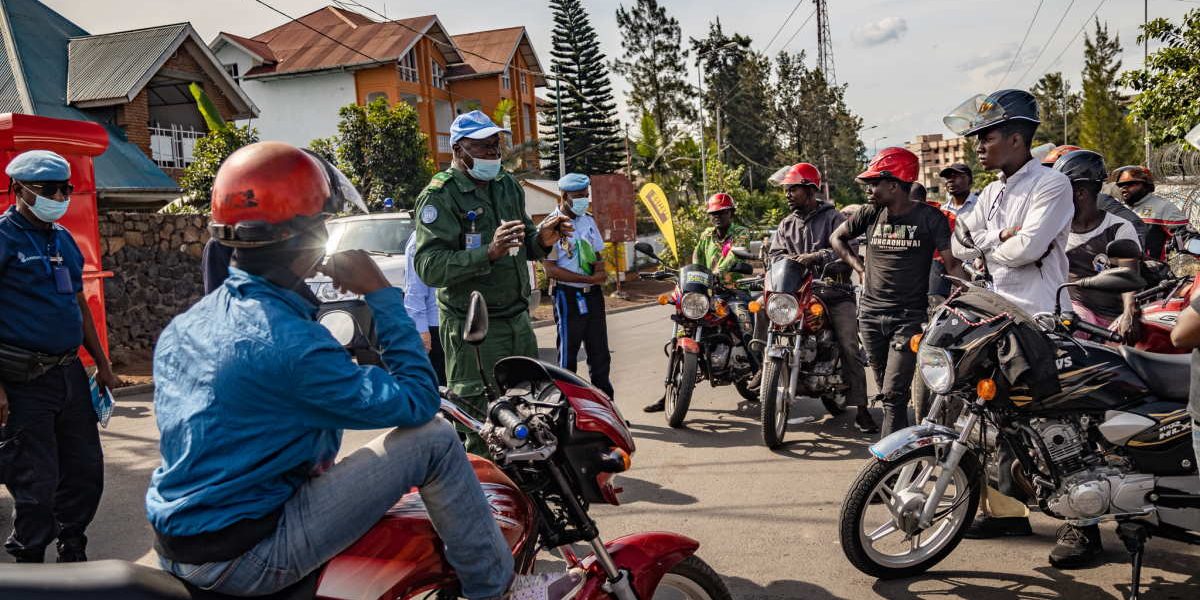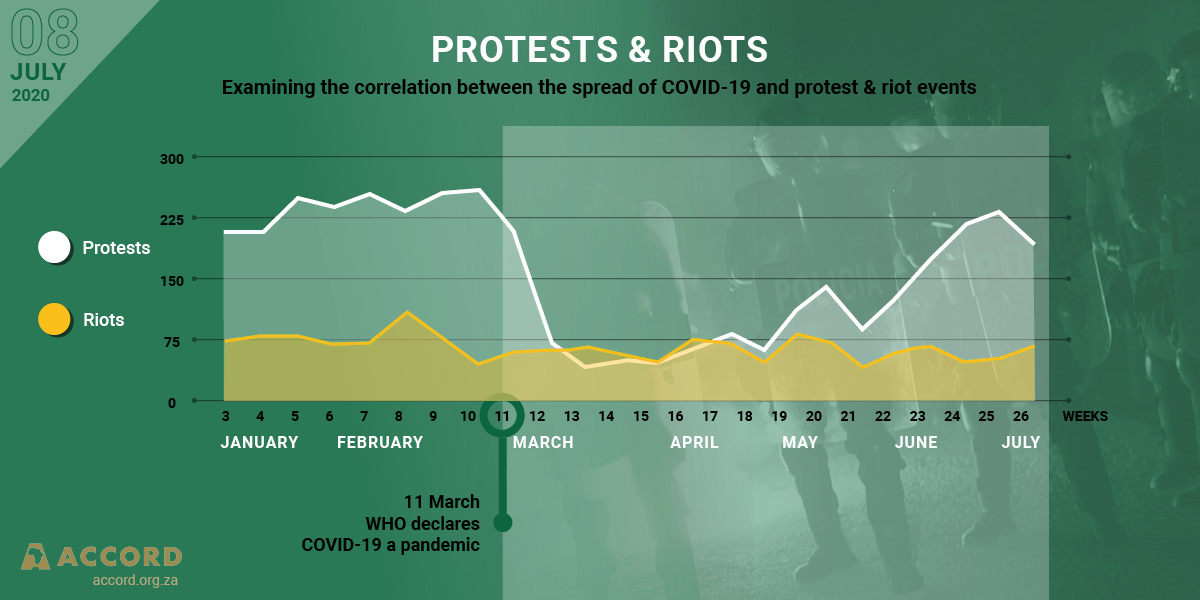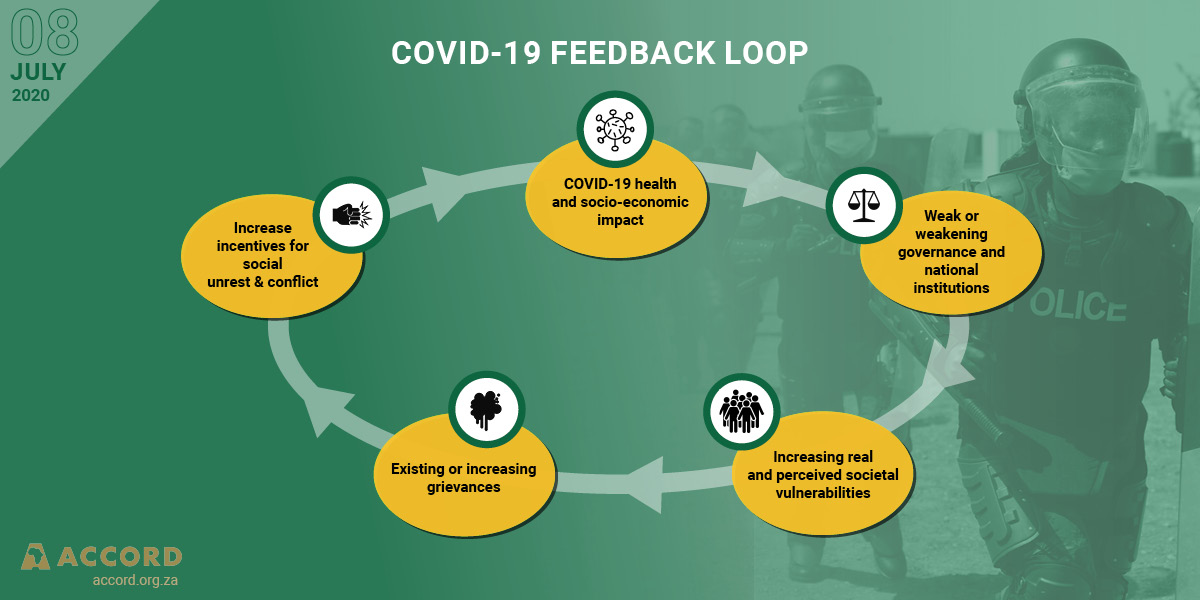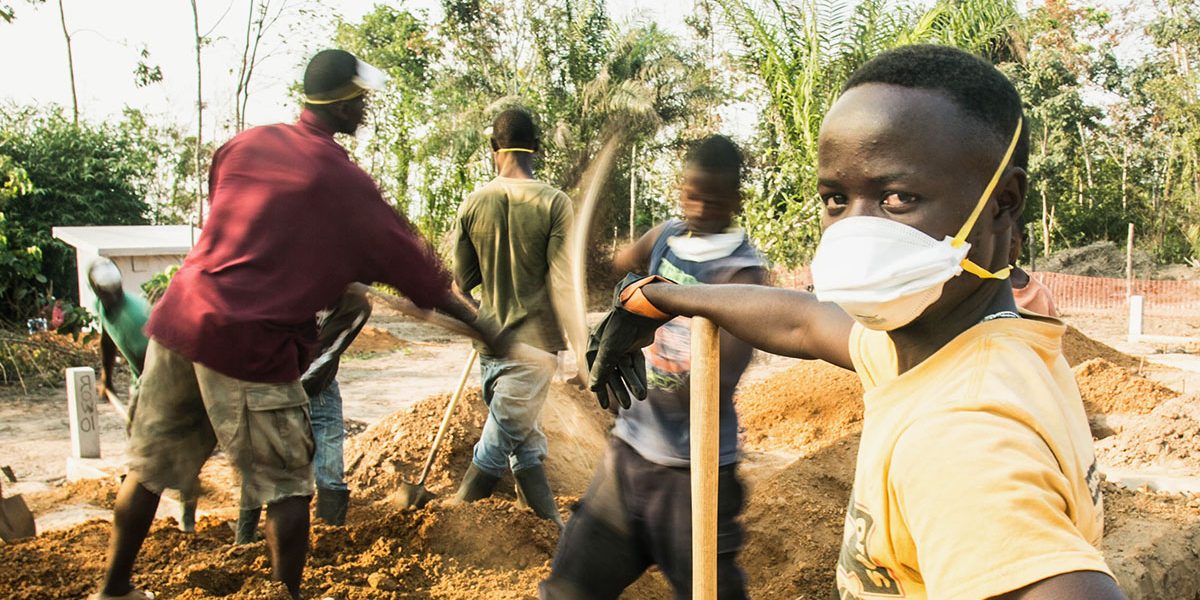In this week’s Monitor, we focus on resilience and the role that the African Union and national and international peacebuilding plays in strengthening social cohesion and community resilience.
Professor Wiseman Nkuhlu, one of the members of the board of trustees of the recently formed African Union COVID-19 Response Fund, leads this week’s Monitor with an overview of the work, objectives and importance of this initiative in Africa’s collective efforts to curb the spread and minimise the socio-economic impact of the coronavirus.
James Henry Murray follows with a think piece on how public trust in governance and institutions has emerged as an important element that determines the resilience of societies to cope with the COVID-19 pandemic.
Marisha Ramdeen notes an increase in COVID-19-related social and political protests, especially in the health, education, politics and service delivery sectors, and suggests that this will be one of the categories to watch in the upcoming months.
Lastly, Cedric de Coning considers the impact of COVID-19 on peacebuilding to date. He suggests that in future, we will travel less and use more digital means to communicate and collaborate. However, the most positive change, accelerated by COVID-19, is a shift to national and local capacities for peace.

